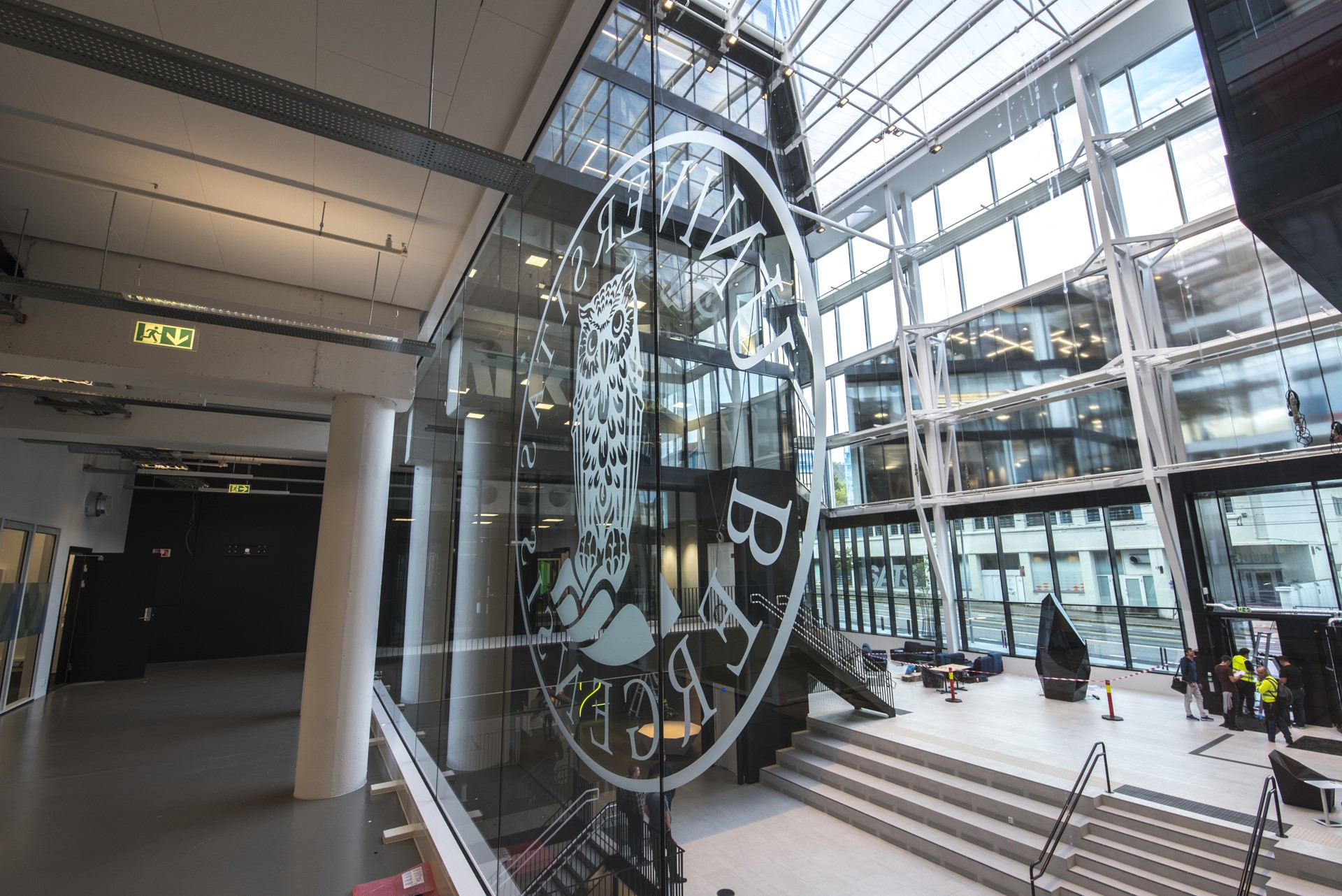Several of the University of Bergen's study programmes that this year experience an increase in the number of applicants are located in Media City Bergen. In the media cluster, the University of Bergen, represented by the Dept. of Informations Science and Media Studies, collaborates with several of the country's strongest innovation and technology companies and environments to offer a very modern education in media production and IT, where the students get a lot of practical experience.
The University of Bergen, Dept of Media and Information Science holds a key position both in the Norwegian Media Cluster and in Media City Bergen, and has developed six new professional oriented study programmes on bachelor and master levels in journalism, television production and interaction design for media. The programs are developed in close collaboration with the industry cluster partners, and the around 200 students located in Media City Bergen have new facilities with all kinds of state of the art equipment and tools. Now, the programs Media City Bergen are among those with the highest number of first-selection applications per available seat, representing a substantial increase in number of applicants.
Popular programs
There is a significant increase on all academic levels, says Ole J. Mjøs, Professor and Academic Director for the University of Bergen in MCB, who believes this is due to the "Media City Bergen Effect".
— Yes, I believe so. We offer three BA and three MA programmes that are uniquely positioned in the middle of the media cluster. The University and its students are thrilled to experience the extensive collaboration with the cluster companies and partners and their openness to do so. More and more people are becoming aware of what we offer. It it only three years since MCB opened, so the future looks very promising, Mjøs adds.
 From a Media Lab Hackathon for students.
From a Media Lab Hackathon for students.
Collaboration is key
— It is obviously popular to be among the lucky students to be part of the environment in MCB, says Anne Jacobsen, the CEO of the Norwegian Media Cluster. She points out that the close collaboration between academia and the industry builds future-focused skills in a unique way.
— It is fantastic to see the huge interest in these programs, yet I am not surprised. The University has done a fantastic job here. This is where the students get to be close to the industry, and to work shoulder to shoulder with global leaders in graphics, AR, journalism and broadcast technology. It is a unique innovation ecosystem where students have real-world opportunities to contribute, influence and put their mark on the future.

(Reference: https://www.uib.no/aktuelt/126623/uib-har-fortsatt-landets-mest-populære-studieprogram)
University of Bergen in Media City Bergen
Media City Bergen is an international knowledge and innovation cluster in which the Department of Information Science and Media Studies, University of Berge,n is co-located with leading media and media technology companies including TV2, NRK, Vizrt, Bergens Tidene, IBM BA, and Vimond. The Department collaborates with these companies within education, research and innovation, and this gives students a unique experience and closeness to the industry.
The University of Bergen is a founding partner of Media City Bergen and the Department of Information Science and Media Studies represents the University in the media cluster. The Department offers three bachelors programmes and three master programmes within journalism, TV production, and media and interaction design, as well as PhD education.
(Reference: https://www.uib.no/en/mediacity)
